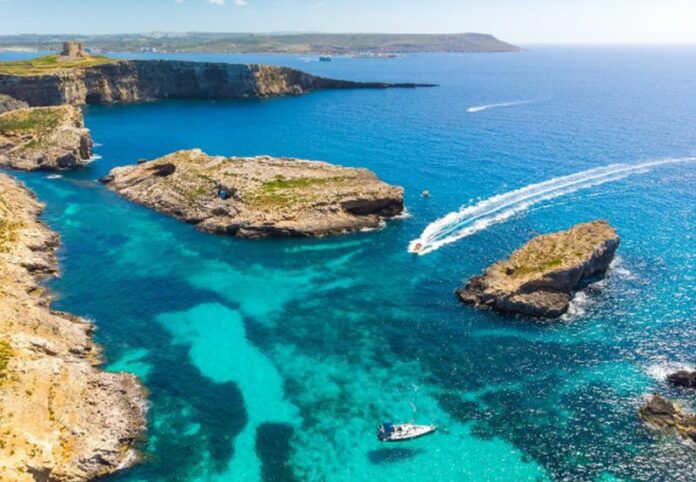LA VALLETTA (MALTA) (ITALPRESS/MNA) – The sea around Malta and Gozo is experiencing a significant marine heatwave with surface temperatures reaching up to 30°C in some areas. According to the Oceanography Marine Research Group of the University of Malta, the average temperature in the first 10m around the Maltese islands ranged between 28°C and 29°C. This is approximately 2°C above the usual average between 15 July and 21 July. These temperatures typically occur later in the year, indicating a shift in seasonal patterns. But this marine heatwave is not isolated to Malta; it has affected the entire central Mediterranean region as evidenced by satellite data and measurements from a buoy installed near Maltàs coast.
A marine heatwave is defined as a period during which the sea temperature is abnormally warm for the time of the year relative to historical temperatures, with that extreme warmth persisting for at least five consecutive days. The implications of this marine heatwave are severe. Warmer waters can significantly alter marine habitats, leading to potential biodiversity loss as marine species leave the warm waters and relocate to cooler waters. According to the Oceanography Marine Research Group of the University of Malta, the rise in temperatures also increases the risk of harmful algal blooms, which can be toxic to marine life and, eventually, humans. These algal blooms were visible over the past couple of weeks in several bays around Malta with the sea turning green. According to marine researcher Adam Gauci from the Oceanography Marine Research Group of the University of Malta who is participating in a study “MedSeaRise project” to determine the long-term impacts of climate change on the Mediterranean region, if current carbon emission levels persist, projections indicate a temperature rise of 4°C and a sea level increase of about 10m over the next century. “It is much more significant than it appears, especially considering the number of coastal communities we have. Additionally, there is a risk that precipitation could decrease by as much as half, resulting in significantly less rainfall,” he noted. The Oceanography Research Group at the University of Malta is closely monitoring the situation, collecting real-time data and analysing it with the help of numerical models. They provide essential marine data services for research and climatological analysis.
(ITALPRESS).
– Photo credit: Malta Tourism Authority –
Malta, sea surface temperatures that have risen above average
Vuoi pubblicare i contenuti di Italpress.com sul tuo sito web o vuoi promuovere la tua attività sul nostro sito e su quelli delle testate nostre partner? Contattaci all'indirizzo [email protected]














